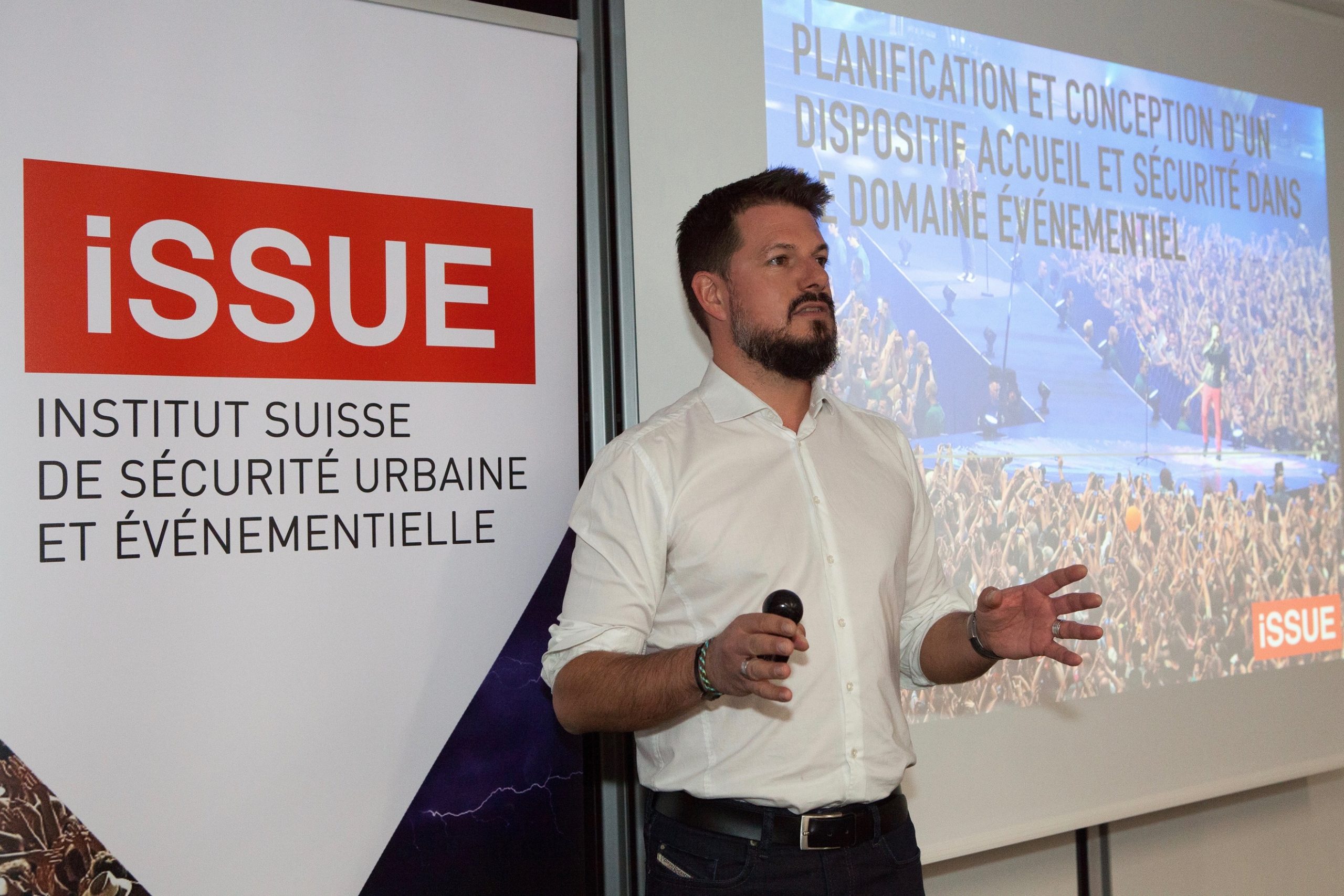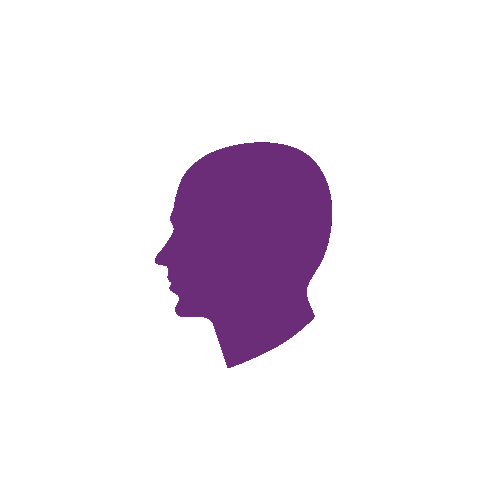PASCAL VIOT
An event management expert, Pascal juggles being a security expert with being a dad and switches from professional to private by cooking

- Head of Security at Paléo Festival
- Director of iSSUE (The Swiss Institute for Urban and Event Security)
- Associate Researcher in Urban Sociology at The Swiss Federal School of Technology of Lausanne
Pascal has been in event management since 1992.
He has been involved in health and safety at sporting (football), cultural (concerts, festivals) and business (conferences, exhibitions) events on a range of scales in Switzerland and the whole of Europe.
Specialized in crowd management and emergency planning, he has been asked to develop and manage the emergency procedures and the crisis management plan of major concerts or events like the Rolling Stones in Lausanne and The Police in Geneva (2007), Dalai Lama conferences in Lausanne (2009) and Sonisphere Festival Yverdon (2012).
He is also a sociologist and a researcher in the field of risk and urban safety analysis and has been a lecturer in several French universities.
Pascal, welcome to the leadership interview!
How do you start your day?
I take my 4 and 7-year-old children to school and daycare before going to the office.
As I have a lot of meetings in the evening and many professional travels abroad, this is my way of spending a short time with them, talking about anything they want.
What was your first job and what is the worst job you’ve ever done?
My first job was as a supervisor for college students aged between 14 and 18, while I was studying at University. I learned a lot at that time about the good and the bad ways to get respect in social interactions…
My worst job ever was a one-year internship in the municipal administration of a small town in France. I realised then that I would probably not be happy in a completely “not challenging” professional context.
What advice would you give to others about furthering their careers?
Trust yourself and work hard to reach your goals. Don’t ask others to help you or recommend you if you don’t deserve it. If you are able to show your motivation and are open-minded enough to learn new things, people will give you a chance.
Who inspires you and why?
Some professors I got to know when studying sociology at university changed my vision of the way the world is running. This is something I will keep with me: If you don’t understand the situation you are dealing with, try to take a step back, enlarge your vision enough to see the whole picture.
Do you think a talent to lead is nature or nurture?
Difficult question. I think people who think they are good leaders by nature are probably not the good ones!
For me, good leadership is a mix of human skills, professional capacity and the opportunity given to express this potential.
How can a leader fail? Do you have a personal example?
A leader gets respected when he is respectable.
To be respectable, you have to pay attention to others.
I think leaders fail when they lose their ability to listen and to integrate others’ visions in their strategy.
It’s always a problem when you are so convinced to be right that you feel you don’t need any advice.
What are your greatest strengths and weaknesses?
I think I have a strong ability to analyse the different aspects of things. That allows me to make my choices and decisions in a very rational way.
On the other hand, I probably reflect too much and am not spontaneous enough! People respect you when you talk to their brain, but they follow you when you also talk to their heart.
What do you find most challenging about being a leader?
What I find most challenging is to make everybody happy.
A leader has to make choices. You feel alone sometimes when you have to decide something, knowing there’s a risk and that some people will disagree.
That’s why I always make sure I am able to explain the reasons for my choices.
Good or bad, there have to be reasons for each decision.
What are you most proud of?
I am a self-made man. There’s no one to fall back on, no one to blame, except me.
I spent 12 years of my life as a research assistant before I finally got my Ph.D. This is because I always had a “real” job at the same time to earn a living and get practical experience. I feel proud of this.
What’s your biggest self-indulgence?
Cooking is for me the best way to switch my brain from professional to private life.
When I cook, I like listening to music and drinking a glass of wine.
Just spending the time to prepare something as tasty as possible for my family or my friends. That’s probably a cultural conditioning coming from my French origins!
If it is of interest, Mind Over Matter Consultancy delivers a range of interactive, highly-pressurised programmes for high performers in companies across the world, underpinned by applied leadership and management theory.
We are able to support the following areas:
- Communication
- Leadership
- Negotiation
- Talent Identification
- Decision Making
- Motivation
- Problem Solving
- Teamwork
Try our bespoke #BlowYouAwayDays programmes where you and your team will be pushed to the limit in anything from RNLI training or kidnap scenarios to dance development, a rollercoaster crash or a grand prix circuit.
